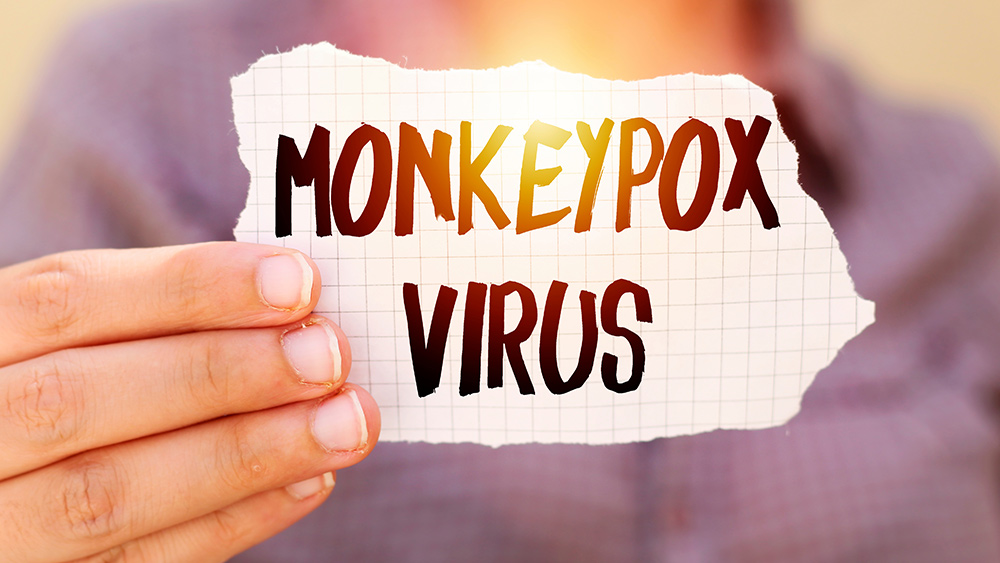Gain sage-like cognitive function by adding sage to your diet
07/08/2020 / By Divina Ramirez

Sage is an herb often found on spice racks around the globe. Outside of its reputation as a popular kitchen herb, sage has also been hailed for its incredible medicinal properties. The herb’s brain-boosting properties, in particular, have been cited by studies as one of its most notable health benefits.
There are hundreds of sage species, but some of the most common ones include Salvia officinalis (common sage), S. miltiorrhiza (Chinese sage), S. lavandulaefolia (Spanish sage), S. fruticose (Greek sage) and S. hispanica (chia).
Sage supports brain health
In traditional medicine, sage has been used to create brain-enhancing tonics. One reason for this is that members of the Salvia genus of plants contain a range of potent plant compounds that studies have found to enhance brain functions and protect the brain from neurological diseases. (Related: Red sage protects against severe cerebrovascular disease.)
Some of the major components of sage include caffeic acid, rosmarinic acid, sagerinic acid, luteolin, apigenin, quercetin, camphor, 1,8-cineole, carnosic acid, ursolic acid and carnosol. Each of these compounds contributes to sage’s natural antioxidant, antidepressant and neurotrophic properties.
Rosmarinic acid and caffeic acid, in particular, can influence biological mechanisms related to cognition. Scientists suggest that the potent combination of these phenolic acids can protect the brain from stress-induced damage and fight free radicals that cause inflammation, thus reducing the risk of dementia in later life.
In fact, a team of researchers from the Shahid Beheshti University of Medical Sciences in Iran and Pars Bioscience, a research institute in Kansas, found that S. officinalis helps stall the progression of dementia.

The researchers’ findings, published in the Journal of Traditional and Complementary Medicine, also affirmed that the herb’s natural mood-enhancing or antidepressant-like properties can be used in natural treatments for late-stage dementia. In this stage, a person suffering from dementia tends to be irritable, prone to agitation and, in some cases, delusions.
All things considered, sage appears to be a potent herb for protecting the brain from inflammation and cellular damage that can lead to dementia and other neurological diseases. Therefore, incorporating it into a balanced diet can help promote brain health and keep the mind sharp in later life.
Planting sage
Brain-boosting sage makes for a pleasant addition to an herb or edible garden. It’s also one of the easiest plants to care for as it is able to tolerate poor soil and arid conditions. Space also shouldn’t be a problem in planting sage, as it does best in containers indoors.
If you’re considering planting sage, here are some important tips to keep in mind to get off on the right foot:
- Sage is best planted where there is a lot of sunlight; however, it doesn’t tolerate extreme heat.
- Sage prefers rich, fertile soil, but it can also tolerate poor soil conditions. It is also a drought-tolerant plant that doesn’t like sitting in moist soil for long periods.
- Sage plants can be started from seeds, root cuttings or transplants. There are pros and cons to each option, but most gardeners tend to start sage as cuttings for a shorter maturation period.
- Pruning the plant helps keep it from getting too big for its container.
- Don’t add fertilizer too often. The essential oils of sage are strongest if the plant is sitting in lean soil.
- Planting sage near carrots, tomatoes and cabbage attracts pollinators that help sage plants bloom.
- If planted in the same container, sage seeds or seedlings should be spaced at least 24 to 36 inches apart.
Sage is a delicious and aromatic herb that contributes to both flavor and nutrition. To reap its medicinal benefits, toss it into salads, sprinkle it over meat dishes or boil it to create a soothing, herbal tea.
Read more articles about sage and other medicinal herbs at Herbs.news.
Sources include:
Submit a correction >>
Tagged Under:
#nutrition, alternative medicine, anti-aging, brain health, dementia cures, dementia prevention, disease treatments, food cures, food is medicine, functional food, herbal medicine, Herbs, natural cures, natural ingredients, natural medicine, nutrients, organics, remedies, sage
This article may contain statements that reflect the opinion of the author





















